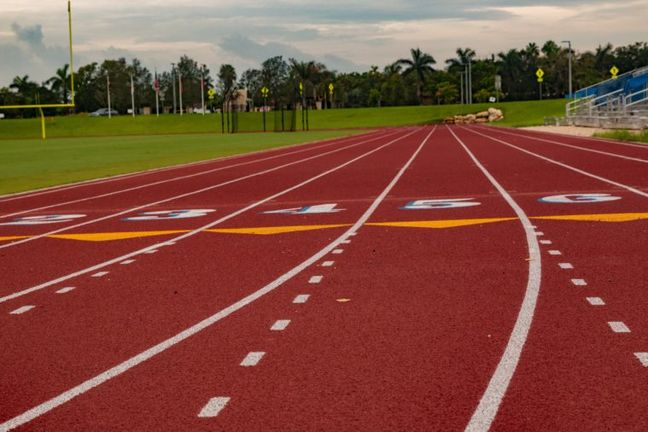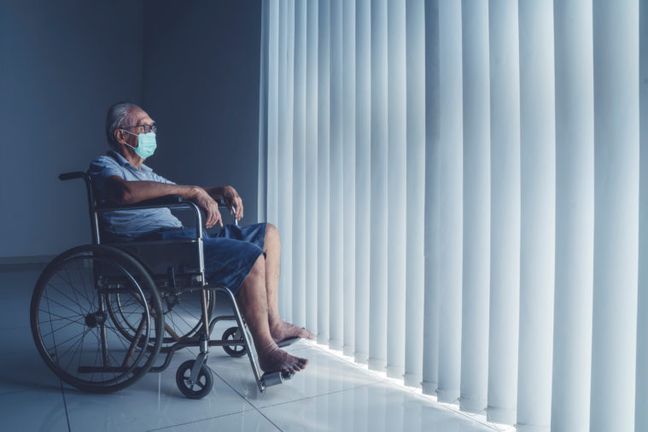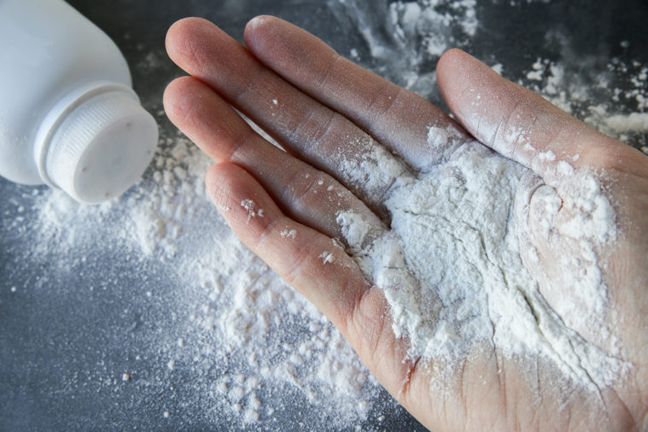Richard DeLisle v. Crane Co., et al.[1] (July 2017)
The Florida Supreme Court is set to revisit the standard by which expert witnesses are qualified. Specifically, the Court is considering the Legislature’s proposed change to the state’s evidence code to now require what is known as the Daubert standard instead of the Frye standard, which the Court has favored for decades.[2]
The case involves a Plaintiff who alleges he contracted mesothelioma from smoking Kent cigarettes when they used asbestos in the filters, and from handling gaskets that contained asbestos when he worked at a paper mill. Plaintiff Richard DeLisle won a $8 million verdict against the Defendants, which an appeals court overturned last fall. The appeals court took issue with the use of multiple experts used in the trial, particularly Dr. James Dahlgren, a medical doctor with a specialty in occupational and environmental medicine, who testified that chrysotile-variety asbestos from the Crane gaskets contributed to DeLisle’s sickness. It felt the same about industrial hygienist Dr. James Rasmuson and his opinion that smoking Kent cigarettes would have put meaningful amounts of crocidolite-variety asbestos in DeLisle’s system. Rasmuson “did not know whether the methodology underlying [the study he cited] was an accepted methodology, nor did he know whether the published study was peer-reviewed, which it was not,” the appeals court said.[3] Overall, according to the court, the testimony of these two witnesses should have been blocked because the trial court did not have enough information to approve or disapprove them. In his appeal to the Florida Supreme Court, DeLisle argues this was an improper application of the Daubert standard, and the court should not have thrown out the testimony that followed settled scientific methods that are widely accepted in the medical community. The Court will now use this case in its consideration of a proposed change to the state’s evidence code on these standards.
The Florida Defense Lawyers Association, the Washington Legal Foundation and the Florida Justice Reform Institute have sought permission to file amicus briefs on behalf of the defendants. The court has not yet set a date for oral arguments.
Florida’s Relation-Back Doctrine
Palm Beach County School Board v. Doe, 210 So. 3d 41 (Fla. 2017)
When do new claims asserted in an amended complaint relate back to the original complaint? The Florida Supreme Court recently reiterated amendments to a complaint asserting new claims can relate back to the date of the original pleading, so long as they arise out of the same conduct, transaction or occurrence as the original claims. In this case, parents and students filed a complaint against a teacher for sexual molestation and against the school board for negligence. The Circuit Court granted the school board’s motion to dismiss the parents’ claims for Negligent Infliction of Emotional Distress and the students’ Title IX claims in their Third Amended Complaint, on the grounds the claims were time barred because they did not relate back to the filing of the original complaint. The parents and students appealed. The Supreme Court then disapproved of a line of cases that established a bright-line rule that an amendment asserting a new claim can never relate back to the filing of the original pleading. Here, the Court held the proper focus of the inquiry is not whether the amended pleadings set forth a new or different claim. Because the violations of the Title IX provisions prohibiting sex discrimination by recipients of federal education arose out of the same conduct as original negligence claims, they related back to the original pleading. The Court held this was consistent with Florida’s judicial policy of freely permitting amendments to pleadings, so long as they do not prejudice the opposing party, so that cases may be resolved on the merits.[4]
Trip and Fall – Summary Judgment Awarded to Supermarket
Brookie v. Winn-Dixie Stores, Inc. 213 So. 3d 1129 (Fla. 1st DCA 2017)
In this trip and fall suit, the First District affirmed the trial court’s granting of summary judgment in favor of the defendant supermarket where the Plaintiff tripped over a pallet he previously saw and walked around. The district court determined the defendant did not owe a duty to warn the Plaintiff of the open and obvious condition since the defendant’s knowledge of the condition was not superior to that of Plaintiff. Additionally, the defendant did not breach its duty to maintain the premises in a reasonable safe condition because the condition was open and obvious and not inherently dangerous. Moreover, even if the pallet’s location was dangerous, the court found it was so open and obvious, and previously observed by the Plaintiff, that the defendant could reasonably have expected the Plaintiff to protect himself from the allegedly dangerous condition.
Presuit Notice Requirements Under Florida’s Medical Malpractice Act – Negligent Supervision Claim
St. Joseph’s Hospital Inc. v. Doe, 208 So. 3d 1200 (Fla. 2d DCA 2017)
A recent second district court decision analyzed the reach of the presuit notice requirements of Florida’s Medical Malpractice Act in a case involving a claim for negligent security and supervision arising from the sexual assault of a hospital patient. The defendant hospital brought a motion for summary judgment based on Plaintiff’s failure to comply with the medical malpractice presuit notice requirements, which the trial court denied. The second district affirmed. The Plaintiff’s claims for negligent supervision and negligent security, alleging that she was sexually assaulted in her room by a hospital employee while she was a mental health patient at the hospital, did not involve the rendering of medical care or services. Thus, the notice requirements did not apply.
Relevance of Driver’s Intoxication in Bifurcated Trial
Geico General Insurance Co. v. Dixon, 209 So. 3d 77 (Fla. 3d DCA 2017)
In this auto accident case, the third district held the trial court erred in admitting evidence and permitting argument regarding the uninsured motorist’s intoxication at the time of the accident in the compensatory damages phase of the trial. The defendant uninsured motorist insurer and defendant uninsured motorist admitted liability and the damages trial was bifurcated into the compensatory and punitive damages phase, thereby rendering the intoxication issue irrelevant in the compensatory damages phase.
[1] The Florida Supreme Court has just accepted jurisdiction of this case; the opinion has not yet been published. For the unpublished citation, please see 2017 WL 3484484.
[2] The Frye standard or Frye test is also known as the “general acceptance test” and provides an expert opinion based on a scientific technique is admissible where the technique is generally accepted as reliable in the relevant scientific community. See Frye v. United States, 293 F. 1013 (D.C. Cir. 1923). Under the Daubert standard, the trial judge is the “gatekeeper” and makes an assessment of whether an expert’s testimony is scientifically valid based on a number of factors, including whether it has been tested, whether it has been subject to peer review and publication, its error rate, standards and widespread acceptance. See Daubert v. Merrell Dow Pharmaceuticals, Inc. 509 U.S. 579 (1993).
[3] Crane et al. v. DeLisle et al., case no 4D13-4351.
[4] Caduceus Properties, LLC v. Graney, 39 Fla. L. Weekly S93, 991-992 (2014).
Download or Print Article Here

 Author: Emily Beck
Author: Emily Beck
 Cannabis Workers Allege Quota to Trim 4 Pounds a Day Violates the California Labor Code
Cannabis Workers Allege Quota to Trim 4 Pounds a Day Violates the California Labor Code
 The Ninth Circuit Reminds Us: Every Word Matters
The Ninth Circuit Reminds Us: Every Word Matters
 NO WAY, PRO SE! The Consequences of Abusing the Judicial System as a Pro Se Litigant in Colorado
NO WAY, PRO SE! The Consequences of Abusing the Judicial System as a Pro Se Litigant in Colorado
 Victim of Financial Mismanagement or Unlawful Retaliation? New Jersey City University Program Founder Claims School Retaliated After Reporting Alleged Sexual Harassment
Victim of Financial Mismanagement or Unlawful Retaliation? New Jersey City University Program Founder Claims School Retaliated After Reporting Alleged Sexual Harassment
 “Real Housewives” Gets a Reality Check
“Real Housewives” Gets a Reality Check
 Missing a Chapter: Insufficiency of Expert Deposition Testimony in Medical Malpractice Litigation
Missing a Chapter: Insufficiency of Expert Deposition Testimony in Medical Malpractice Litigation
 Crash Course: Why Summary Judgment Misses the Mark in Illinois Multi-Cause Limousine Crash Collision
Crash Course: Why Summary Judgment Misses the Mark in Illinois Multi-Cause Limousine Crash Collision
 Bitter Truths: Lead, Cadmium, and Defective Pleadings in California Chocolate Class Action
Bitter Truths: Lead, Cadmium, and Defective Pleadings in California Chocolate Class Action
 The Law of Unintended Consequences: Including Insurance Brokers in Litigation Strategy Communication May Waive the Attorney-Client Privilege
The Law of Unintended Consequences: Including Insurance Brokers in Litigation Strategy Communication May Waive the Attorney-Client Privilege
 What Makes a Verdict Go Nuclear? $102 Million Jury Verdict v. $370,000
What Makes a Verdict Go Nuclear? $102 Million Jury Verdict v. $370,000
 New York Bill Narrows Liability Immunity for Nursing Homes and Hospitals
New York Bill Narrows Liability Immunity for Nursing Homes and Hospitals
 Florida Update: Tort Reform Phantom Damages Bill Fails
Florida Update: Tort Reform Phantom Damages Bill Fails
 California Case Law Update
California Case Law Update
 New York Case Law Update
New York Case Law Update
 California Case Law Update
California Case Law Update
 Florida Case Law Update
Florida Case Law Update
 Arizona Case Law Updates
Arizona Case Law Updates
 California Case Law Update
California Case Law Update